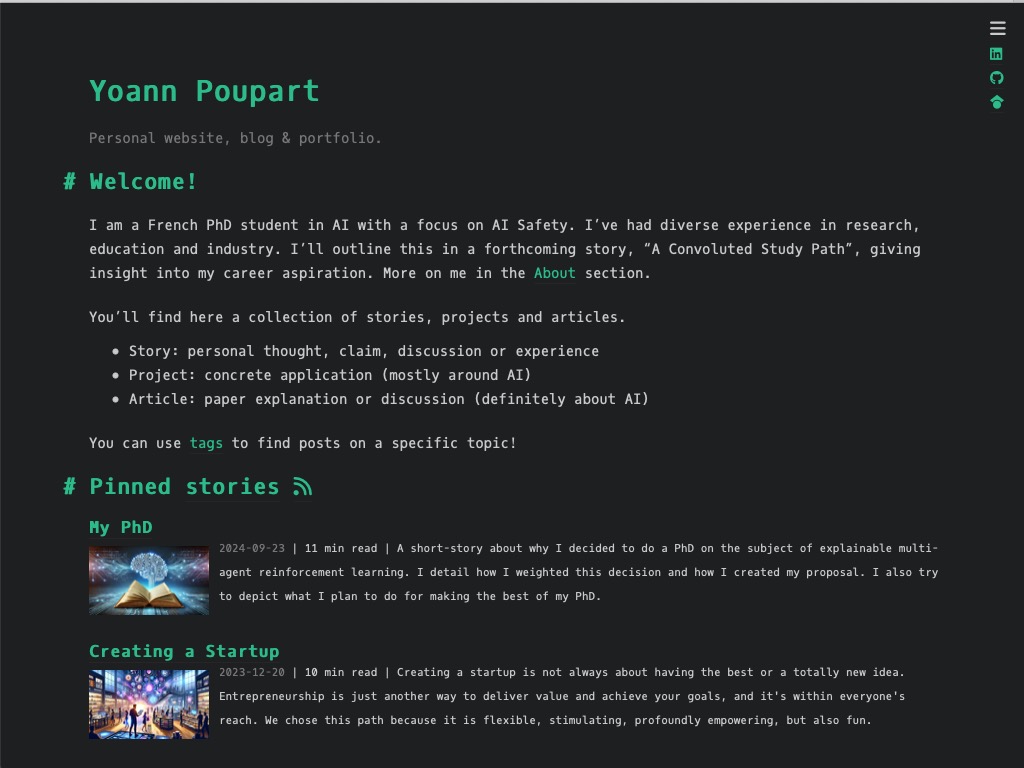POUPART Yoann
 Doctorant à Sorbonne Université (Moniteur, )
Doctorant à Sorbonne Université (Moniteur, )Équipe : SMA
Date d'arrivée : 01/09/2024
- Sorbonne Université - LIP6
Boîte courrier 169
Couloir 25-26, Étage 4, Bureau 416
4 place Jussieu
75252 PARIS CEDEX 05
01 44 27 36 67
Yoann.Poupart (at) nulllip6.fr
https://yp-edu.github.io
Direction de recherche : Nicolas MAUDET
Interprétabilité pour les systèmes multi-agents profond
Les systèmes multi-agents (SMA) se sont démocratisés ces dernières années notamment grâce à l'interfaçage en langage naturel rendu possible par les grands modèles de langage. Même si leur capacité à résoudre des tâches complexes est indéniable, la dynamique qui émerge de ces systèmes peut être difficile à prévoir et des garanties sont nécessaires. Le jailbreak, l'adversarialité ou la recherche de pouvoir sont des modes de défaillances préoccupantes des SMA, et l'évaluation de ces capacités reste un problème difficile. À cet égard, l’interprétabilité pourrait être l’un des meilleurs outils pour surveiller et contrôler plusieurs agents simultanément et automatiquement. En effet, les éléments internes du modèle transmettent les informations utilisées pour sa prédiction et peuvent être utilisés symboliquement pour gagner en compréhension ou en contrôle.
Publications 2025
-
2025
- A. Panguel, Y. Poupart : “Methods for analysing Leela Chess Zero: Capabilities, Interpretability, and Comparative Performance of Neural Chess Engines”, 37 pages (2025)
- Y. Poupart, A. Beynier, N. Maudet : “Perspectives for Direct Interpretability in Multi-Agent Deep Reinforcement Learning”, (2025)
